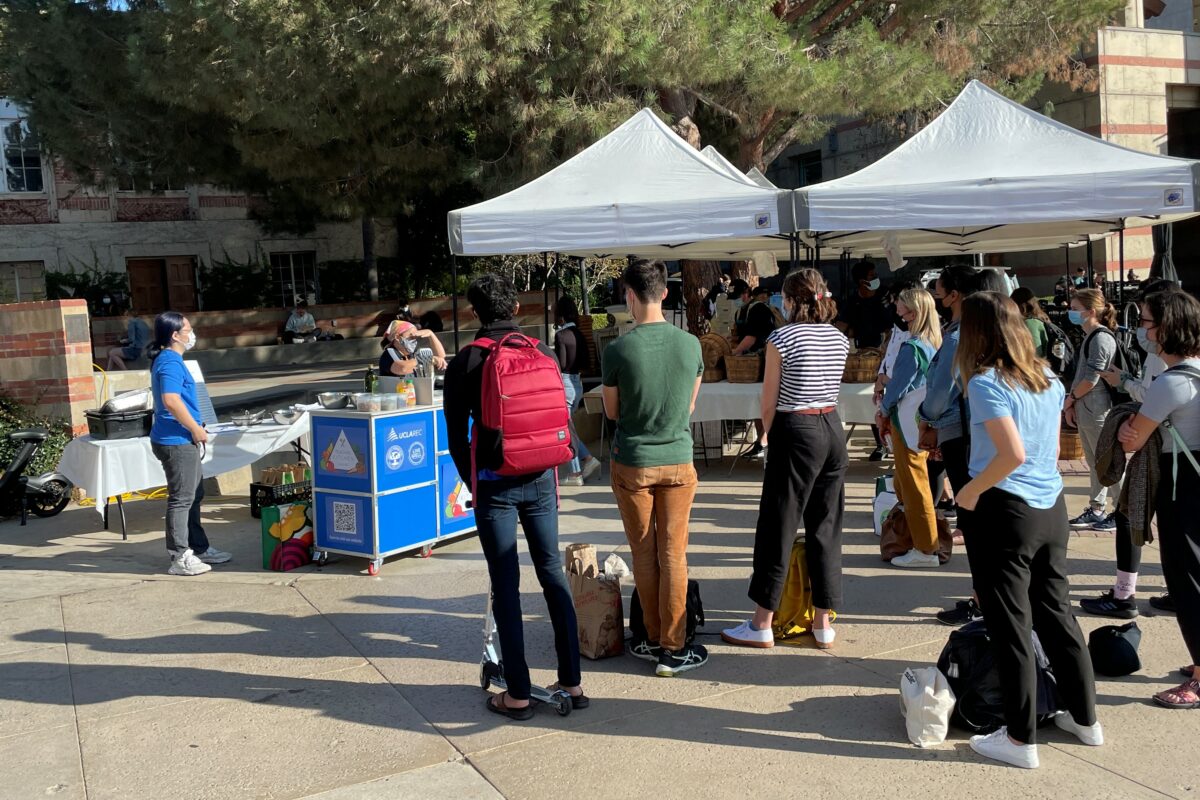By Kristida Chhour
2021-22 Zero Waste Ambassador
Food is a hot topic at UCLA, with lots of exciting new events and programming going on. This month, the Zero Waste Ambassadors debuted the Zero Waste Kitchen Companion, a guide all about implementing sustainable practices in the kitchen, at the Food Day 2021 event. The event was held on November 10th by the EatWell Pod, UCLA Farmer’s Market, Teaching Kitchen at UCLA, jane b semel HCI Community Garden, and Zero Waste.
The goal of the Kitchen Companion is to teach people about low-waste cooking and raise awareness about the environmental impact of food-related waste. Low-waste cooking is adapting our approach to cooking and grocery shopping to reduce the amount of food waste and packaging that goes to landfills. This could mean keeping veggie scraps to make a stock or buying package-free vegetables instead of pre-cut, packaged ones. Trying to make some changes in your habits to reduce your impact on the environment is a fun challenge that is often budget-friendly.
The Kitchen Companion also includes guides on foundational kitchen knowledge, skills, and how-tos to help our fellow students feel more confident in the kitchen. We cover the essentials, from explaining which knife to use for what job to buying seasonal produce and properly storing food. The guide also highlights food-related campus resources such as UCLA community cookbooks and the Community Programs Office Basic Needs Food Closet. With this guide, anybody can get a better grasp of kitchen skills and learn how to implement sustainable changes in their lifestyle.
Food is deeply intertwined with our livelihoods, culture, and social lives. The Zero Waste Ambassadors are addressing waste through the lens of food because of its universality. Food has no boundaries and is relevant to everybody. Our food systems, however, have a significant impact on the environment: about 8-10% of greenhouse gas emissions are associated with food that is not consumed (UNEP Food Waste Index Report 2021). We can help reduce this amount by raising awareness and making small changes in our kitchen habits. Our previous project, the Food Waste Recovery Implementation Guide, also provides resources about how to divert food waste through food recovery and redistribution, which helps out our fellow Bruins. Together we can help reduce food waste and make a positive environmental impact.
To connect with Zero Waste, you can reach us via zerowaste@ucla.edu or on our Instagram @zerowasteucla.
